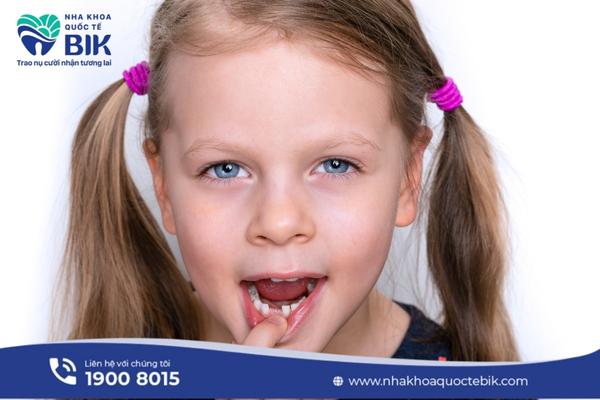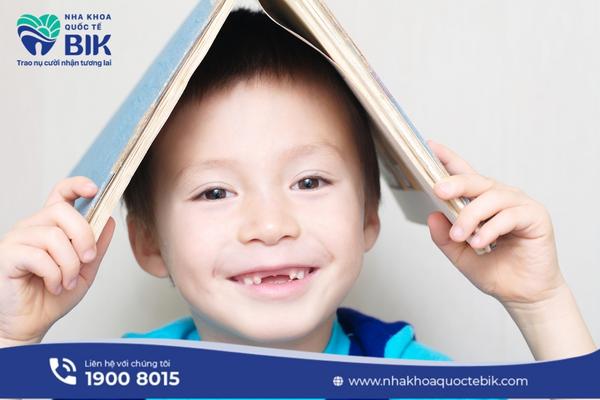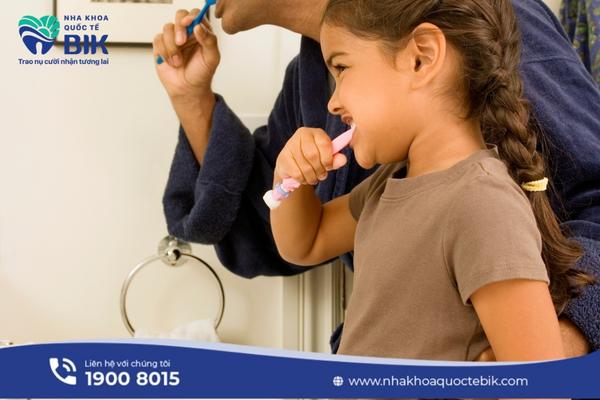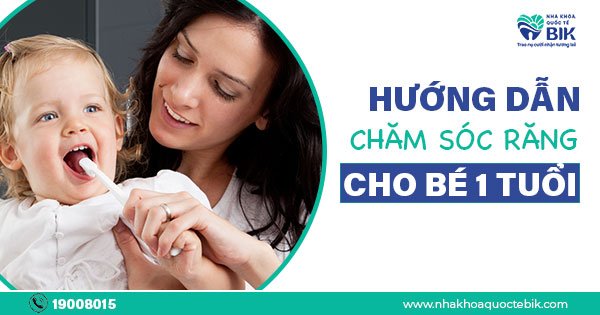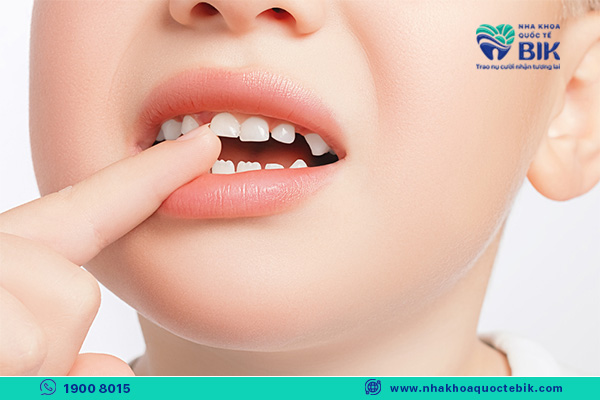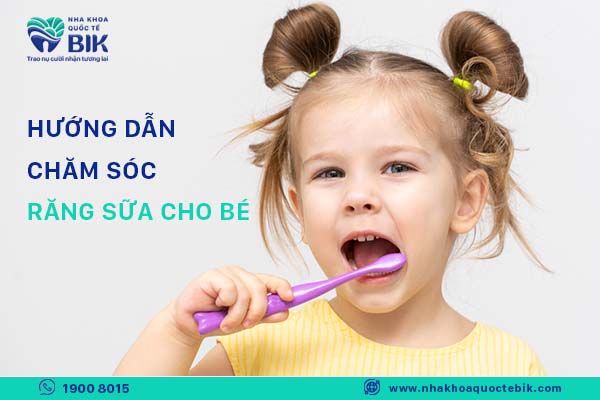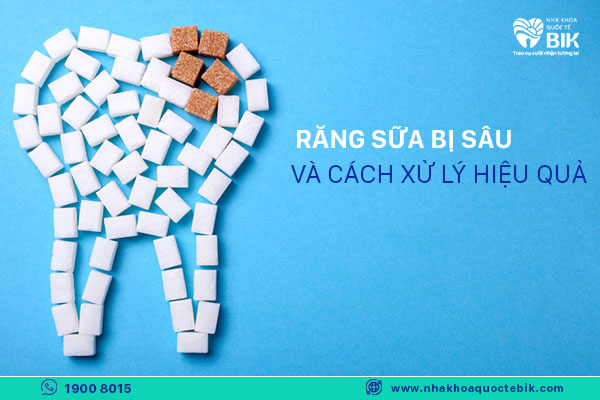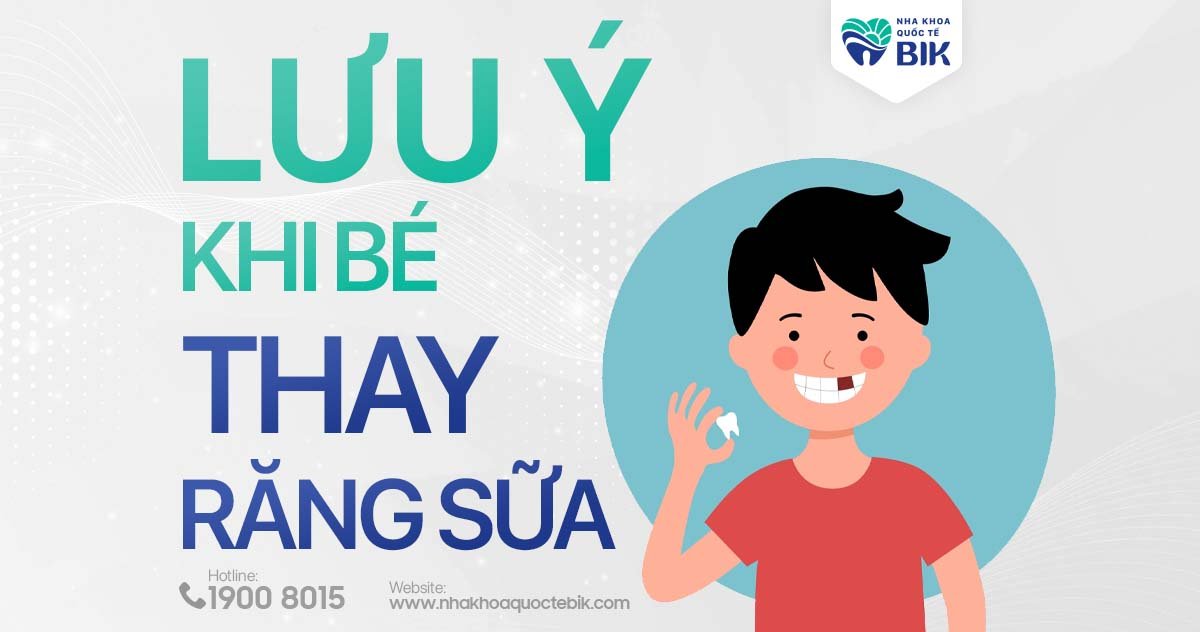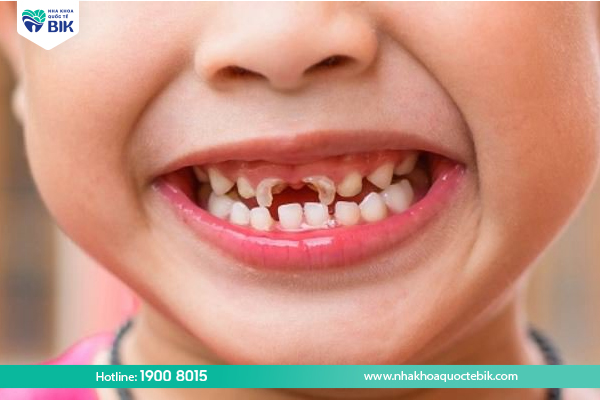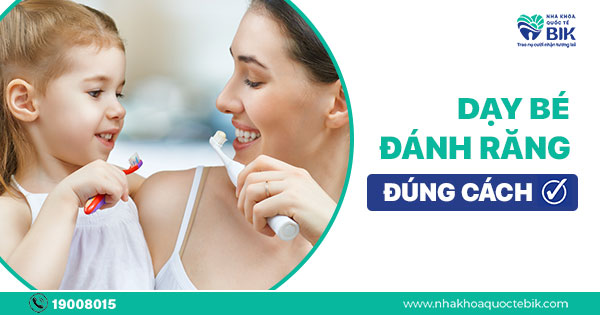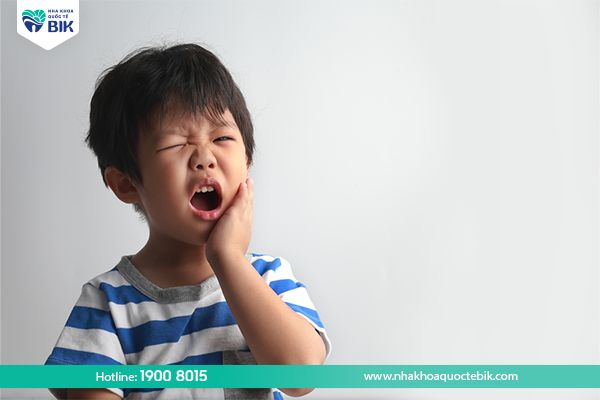
Improper brushing is the leading cause of tooth decay in children between the ages of 4 and 8. Knowing this, many parents have paid attention to how to care for their baby’s baby teeth from a very early age, thereby creating good habits to help their children have strong teeth from a young age, creating the premise for the development of permanent teeth.
1. When do baby teeth begin to form?
Baby teeth are also called temporary teeth because they only exist with the baby’s development in the first few years of life. However, baby teeth play an extremely important role in the chewing process, as well as having a long-term effect on the baby’s oral health later on.
The process of baby teething in children can be different, some children grow late or early. Normally, the first baby tooth will grow when the baby is about 6 months old. 20 primary teeth, including 10 upper teeth and 10 lower teeth, will gradually grow in order. Then, when the child is about 5 – 6 years old, the baby teeth will begin to fall out and be replaced by permanent teeth. The time for baby teeth to be completely replaced by 32 permanent teeth will last about 6 years.
2. Order of baby teeth eruption age
– 6-12 months: Central incisor eruption
– 9-16 months: Lateral incisor eruption
– 13-19 months: First molar eruption
– 16-23 months: Canine eruption
– 22-33 months: Second molar eruption
3. How to care for baby’s baby teeth according to each stage
At each different stage, parents should apply different teeth cleaning methods to ensure effectiveness:
3.1. 6-8 months old
If during this stage the baby has not yet grown baby teeth, each time after drinking milk, the mother should still use a tongue cleaner soaked in warm water to clean the tongue and gums so that the baby gets used to the feeling of a clean mouth.
When the first tooth has grown, mothers should start taking care of their child’s teeth with gauze soaked in diluted salt water, paying attention to thoroughly cleaning both the inside and outside of the teeth.
3.2. 2-3 years old
Baby teeth begin to grow in turn on the jaw, this is also the time when mothers should apply the correct tooth brushing method to clean their baby’s teeth. At this time, the baby can also use the right toothpaste, the amount of toothpaste each time brushing teeth should only be as small as a pea.
3.3. 3-6 years old
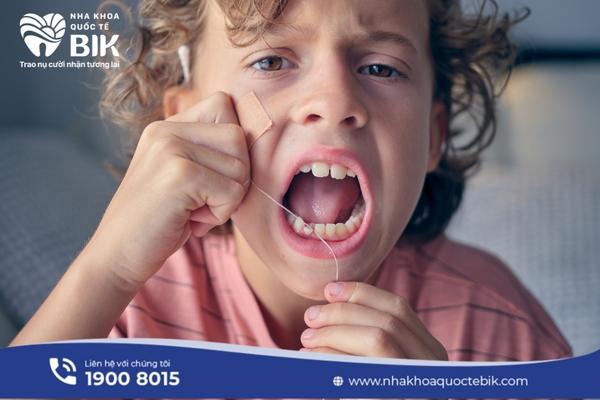
At that time, the process of baby teething has gradually ended with the full appearance of 20 teeth on the jaw. At this age, the baby can brush his teeth twice a day under the supervision of an adult. In addition, to motivate and encourage the baby to form the habit of oral care, parents can brush their teeth with the baby to bring a joyful atmosphere to this activity.
3.4. 6-9 years old
At this age, baby teeth have gradually been replaced by permanent teeth, so oral care is even more important. Parents should continue to observe and check whether their children brush their teeth properly and start instructing them to use dental floss to clean between their teeth.
4. Notes to protect baby teeth
Even though they are only temporary teeth, if baby teeth are decayed, it will also affect the baby’s oral health. Therefore, it is necessary to note the following to protect your baby’s baby teeth:
4.1. Train your child to have oral hygiene habits
Parents should remind their children to brush their teeth twice a day when they can clean their teeth themselves, each time should last about 2-3 minutes so that food debris can be completely removed from the oral cavity. It is possible to create conditions for children to choose their own toothbrush and toothpaste flavor to stimulate their interest in oral hygiene. However, parents need to make sure to only let their children use soft-bristled toothbrushes of the right size to avoid damaging the gums.
4.2. Pay attention to your child’s diet
Today, canned foods, fast foods, and sugary drinks are gradually replacing fresh foods in the past. Therefore, the daily nutritional regimen of children is an issue that needs to be paid much attention to protect baby teeth from bacterial attacks.
4.3. Regular dental check-ups
As soon as the first baby teeth have grown steadily, parents should take their children to the dental clinic to check the condition and development of the teeth. In addition, it is possible to create conditions for children to have regular dental check-ups as prescribed by the doctor to detect and treat oral diseases promptly if any.
Oral hygiene is always necessary at every age, because everyone wants to have a bright white smile every day. That is why many parents are very interested in how to care for their children’s baby teeth from a very young age with the hope that their children will have healthy and beautiful teeth when they grow up.


